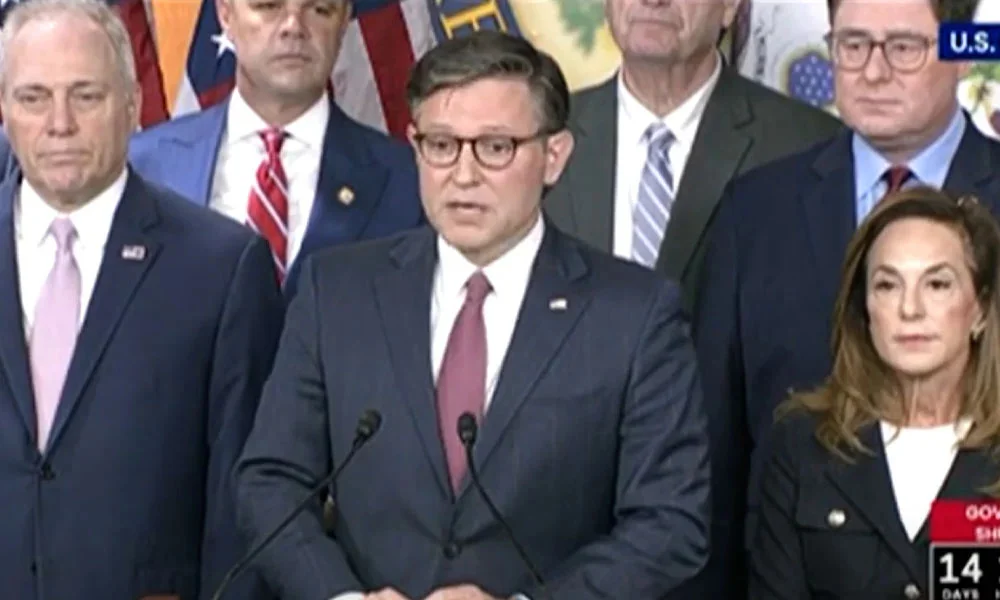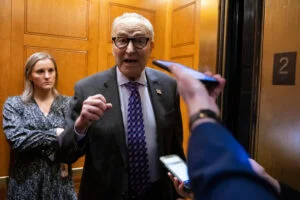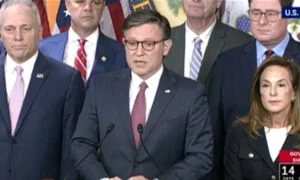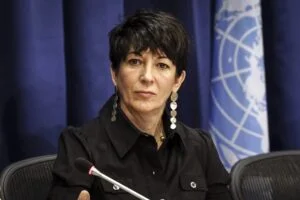Mike Johnson Melts Down After Democrats Call Him Out: ‘They Stormed My Office’, ‘Attacked a Cop’

The U.S. Supreme Court, with its 6-3 conservative majority, appears poised to take another axe to the Voting Rights Act—this time threatening to gut one of its most vital remaining protections: Section 2. In oral arguments Wednesday, the justices signaled a willingness to overturn a lower court ruling that had required Louisiana to add a second Black-majority congressional district—potentially unraveling decades of progress in protecting minority voting power.
If the Court rules the way its conservative wing seems to be leaning, the implications will be seismic. Section 2 of the Voting Rights Act prohibits voting laws or practices that result in racial discrimination, even if that discrimination is unintentional. It has long served as the firewall against racial gerrymandering. Now, that firewall may be on the verge of collapse.
At the heart of the case is Louisiana, a state where Black residents make up roughly one-third of the population but were granted only one majority-Black district out of six in the congressional map drawn by its Republican-controlled legislature. A federal court found that this diluted Black voting power in violation of Section 2 and ordered a second Black-majority district. The legislature complied—but then came a new lawsuit, this time from white voters, claiming the revised map discriminated against them.
This case is about much more than lines on a map. It’s about the future of multiracial democracy in the United States. And if the Court strikes down Section 2’s use in redistricting, it could open the door to widespread racial gerrymandering—handing an electoral edge to one party that’s increasingly reliant on white-majority districts to cling to power.
Janai Nelson, president of the NAACP Legal Defense Fund, urged the justices not to weaken Section 2, warning that doing so now—after it has proven so effective—would be reckless.
It was Section 2, she reminded them, that forced Louisiana to fix a map that diluted Black votes and “entrenched control” in the hands of the state’s white electorate.
“It would be catastrophic,” Nelson said when Justice Elena Kagan asked what might happen if the Court stops Section 2 from operating in redistricting cases. “We have the level of political diversity and racial diversity in our representative leadership that we do because of litigation that forced the creation of districts that allow for the full participation of communities of color.”
But conservative justices seemed more interested in limiting race-conscious remedies—even those designed to repair centuries of voter suppression.
“This court’s cases, in a variety of contexts, have said that race-based remedies are permissible for a period of time… but that they should not be indefinite and should have an end point,” Justice Brett Kavanaugh said, according to Reuters.
Louisiana Solicitor General Benjamin Aguinaga went further, arguing the mere act of drawing a second Black-majority district was discriminatory—because it assumed Black voters think and vote alike. “Race-based redistricting is fundamentally contrary to our Constitution,” he said, calling the map an exercise in “racial stereotypes.”
It’s an argument that flips the logic of civil rights protections on its head: that trying to address racial injustice is itself unjust.
Colorblind Constitution or Colorblind Politics?
The argument from Louisiana—and echoed by conservative justices—is rooted in a strict “colorblind” reading of the Constitution. The idea is that any consideration of race, even to remedy discrimination, is suspect.
Justice Samuel Alito questioned whether partisan advantage is a legitimate goal for legislatures. “Isn’t seeking partisan advantage also an objective that a legislature may legitimately seek?” he asked.
Nelson pushed back: “Not when it comes at the cost of the equal protection principle.” She reminded the Court that racially polarized voting still dominates Louisiana’s political landscape. “The fact that Black voters may correlate with voting Democrat or white voters may correlate with voting Republican does not deny the fact that there is racially polarized voting,” she said.
In other words, pretending race doesn’t matter in voting is not the same as race not mattering. The outcomes—no Black candidates ever winning statewide office, for example—tell the real story.
A Clear Path to Minority Rule
If Section 2 is undermined, Republicans could reconfigure up to 19 congressional districts, according to advocacy groups Fair Fight Action and Black Voters Matter Fund. With the GOP holding only a slim majority in the U.S. House, the stakes are enormous. This isn’t just a legal battle—it’s a power play with national consequences.
The last time the Court weakened the Voting Rights Act—in its infamous 2013 Shelby County v. Holder decision—it eliminated the requirement that states with histories of discrimination get federal approval before changing voting laws. The result? A flood of restrictive laws in those very states.
Now, the Court could strike the final blow by invalidating the very section meant to stop voter suppression before it happens.
And what’s left after that? Gerrymandered maps. Disenfranchised communities. One-party rule in states where elections are supposed to be competitive.
It’s a future that Justice Kagan seemed acutely aware of when she asked what would happen “on the ground.”
Nelson didn’t hesitate: “I think the results would be pretty catastrophic.”
If the Court goes down this road, the Voting Rights Act may soon be a relic—gutted by the very institution that once upheld it. And the balance of American democracy may tilt permanently, not because voters demanded it, but because the lines were drawn to ensure it.
- Senate Fails For Ninth Time to Advance Government Funding Plan
- Mike Johnson Melts Down After Democrats Call Him Out: ‘They Stormed My Office’, ‘Attacked a Cop’
- Sports Best Streaming Sites for Football (Soccer) in 2025
- Ghislaine Maxwell Loses Supreme Court Appeal, 20-Year Sentence Stands
- Filmoflix.bz – What Is It? Safe to Use? Full Review & Access Guide (2025)







